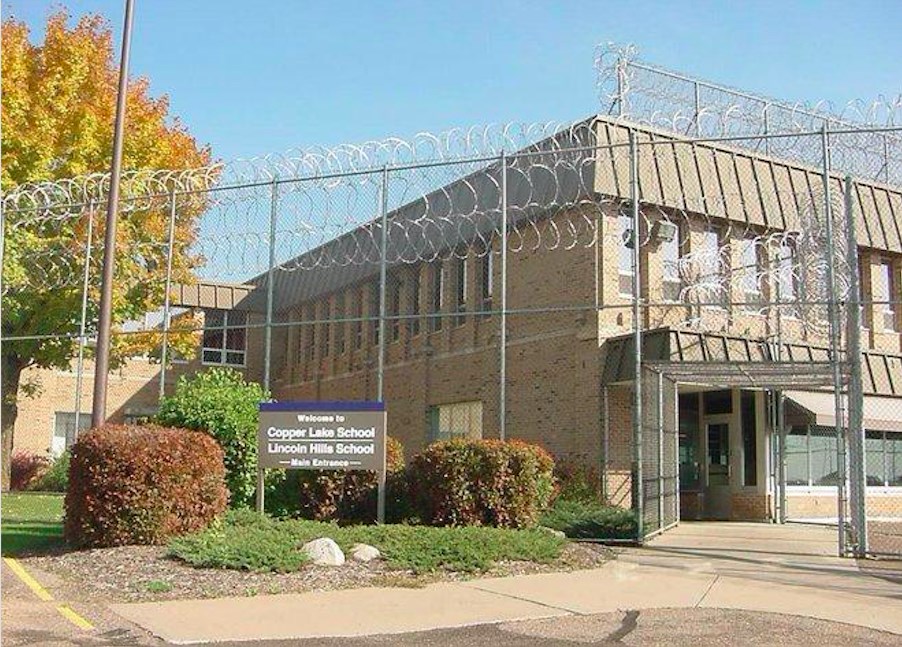Milwaukee County Wants Alternatives to Youth Incarceration
After the legislature failed to fund new facilities, Milwaukee County continues to explore alternatives to locking kids up.

Lincoln Hills School for Boys and Copper Lake School for Girls will likely stay open beyond the current July 2021 deadline. Photo from the Department of Corrections.
Although the closure of the state’s two youth prisons remains in question, Milwaukee leaders say their focus continues to be on finding alternatives to youth incarceration.
Last week the Joint Finance Committee voted not to fund two state-run youth prison facilities, one of which would have been located in Milwaukee County. This makes it unlikely that Lincoln Hills School for Boys and Copper Lake School for Girls will be closed by the July 2021 deadline.
Mary Jo Meyers, director of Milwaukee County’s Department of Health and Human Services, called the news disappointing.
“On the surface, it definitely changes our plans because it forces us to go back to the drawing board again,” she said. “But we’ve been working actively to reduce the number of kids going to secure facilities and to see how the kids we have there can be brought back sooner. So from the perspective of our programming, that all will continue to happen.”
Act 185 only authorizes funding for construction of new prison facilities. It does not include any funding for the alternatives to incarceration that the county wants to implement.
Youth Justice Milwaukee, an advocacy organization, has also stressed the importance of funding programming instead of constructing new facilities. Sharlen Moore, its executive director said her organization is focused on keeping young people out of the incarceration system altogether.
“We’re looking to decrease the footprint of incarceration in Wisconsin,” Moore said. “We’re not here to build prisons, we’re here to support young people.”
Meanwhile, the county is continuing to focus on its “continuum of care” model, which favors integrating young people back into the Milwaukee community through a series of specialized programs. The model, based on other systems used across the nation, is designed to limit the amount of time youth spend in prison and to connect them with mentors and resources.
That model, and the work on-the-ground in Milwaukee, isn’t changing much in the near future, said Dawn Barnett, co-executive director at Running Rebels, a community organization that partners with the county to work with young people involved in the justice system.
“The issue with what’s happening with Act 185 is that it’s all talk right now. Our focus is doing everything we can for the young people in our care every single day,” she said.
This story was originally published by Milwaukee Neighborhood News Service, where you can find other stories reporting on fifteen city neighborhoods in Milwaukee.
Legislation Link - Urban Milwaukee members see direct links to legislation mentioned in this article. Join today
More about the Lincoln Hills and Copper Lake Facilities
- Lincoln Hills and Copper Lake Youth Facilities Found in Compliance, Triggering End to Court-Ordered Monitoring Set in Place by 2017 Lawsuit - American Civil Liberties Union of Wisconsin - Jan 28th, 2026
- Gov. Evers, Doc Celebrate Completion Of Successful Reforms at Lincoln Hills and Copper Lake Schools - Gov. Tony Evers - Jan 28th, 2026
- Gov. Evers Announces State Building Commission Approves Approximately $185 Million in Projects Across Wisconsin - Gov. Tony Evers - Dec 17th, 2025
- Building Commission OKs Planning Funds to Reorganize Wisconsin Prisons - Sarah Lehr - Oct 29th, 2025
- State Building Commission Releases Funding Gov. Evers Requested to Revamp Corrections Facilities - Gov. Tony Evers - Oct 28th, 2025
- Gov. Evers Announces Evers Administration to Move Forward with Comprehensive Plans to Revamp Corrections Facilities - Gov. Tony Evers - Oct 14th, 2025
- For The First Time, Wisconsin’s Youth Prisons Are Fully Compliant With Required Reforms - Rich Kremer - Oct 3rd, 2025
- Inmate Sentenced For Role in Youth Counselor’s Death at Troubled Prison - Isiah Holmes - Aug 11th, 2025
- Evers’ Prison Plan Receives Mixed Reviews - WPR Staff - Feb 21st, 2025
- ‘First of its Kind in Wisconsin’ Collaboration Will Support Disabled Incarcerated Youth - Andrew Kennard - Dec 12th, 2024
Read more about Lincoln Hills and Copper Lake Facilities here
MKE County
-
Fellow Judge Testifies in Dugan Case
 Dec 16th, 2025 by Graham Kilmer
Dec 16th, 2025 by Graham Kilmer
-
Key Questions in Dugan Trial Take Shape on First Day
 Dec 15th, 2025 by Graham Kilmer
Dec 15th, 2025 by Graham Kilmer
-
FTA Tells Milwaukee to Crack Down on Fare Evasion — Even Where Fares Don’t Exist
 Dec 12th, 2025 by Graham Kilmer
Dec 12th, 2025 by Graham Kilmer






















It is beyond comprehension that some of our Wisconsin legislators do not understand the destructive pattern they are developing by choosing to add/build new prison facilities. It would cost a fraction of those dollars to launch programming that guarantees rehabilitation, treatment and a re-integration back into the community with positive outcomes including a continuum of care that furthers education and workforce preparation–while reducing the cycle of poverty leading to unlawful behavior. Keeping young people in prison without the option of alternatives guarantees we will not break the cycle of mass incarceration and poverty in Wisconsin.
K. Coy-Romano
Task Force on Criminal Justice Reform